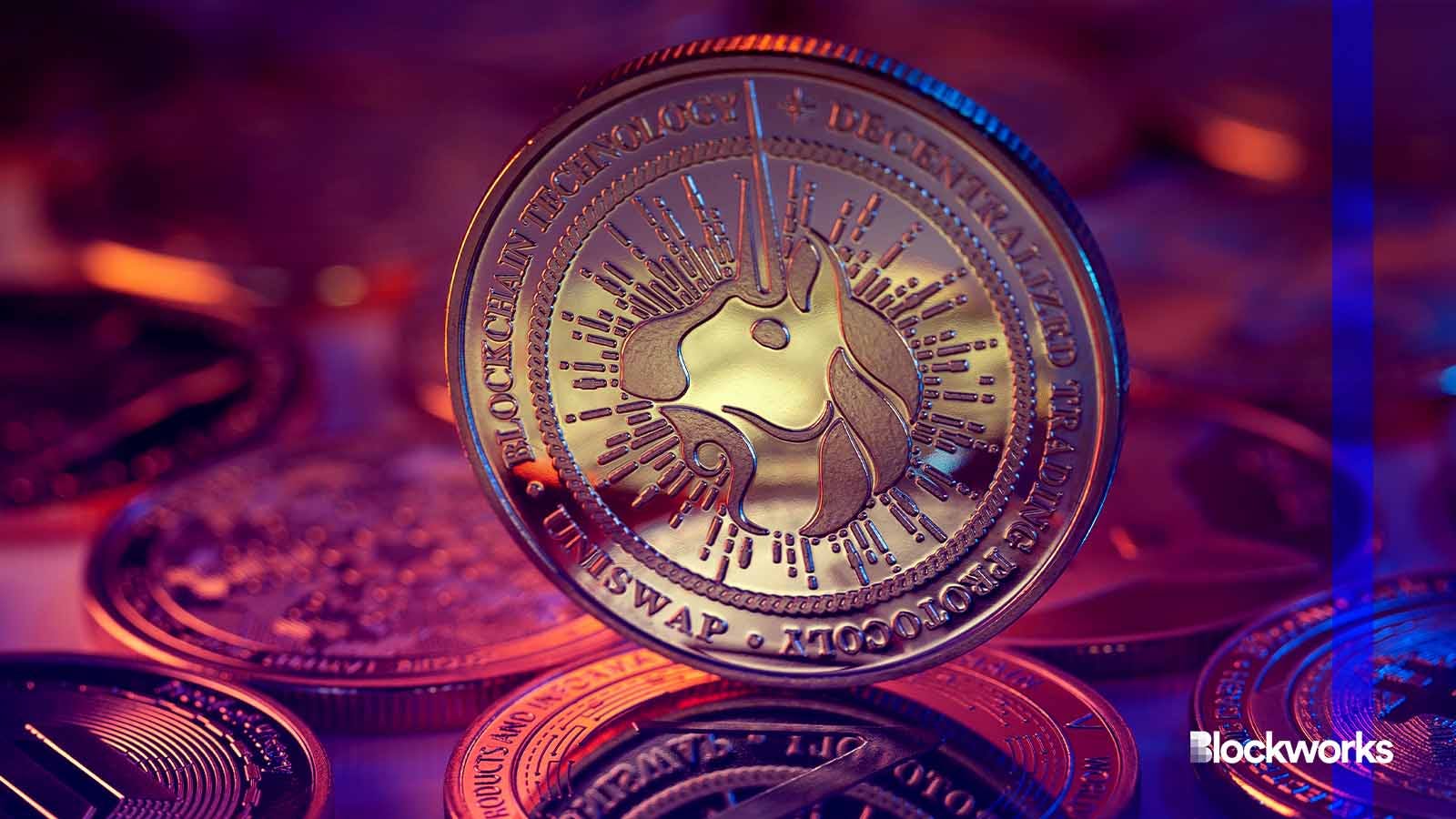As Uniswap fees accumulate, other trading platforms join the fray
Some industry participants say moves to enable trading fees are a welcome change in sentiment towards revenue creation, while others call it unsustainable

DIAMOND VISUALS/Shutterstock modified by Blockworks
Uniswap Labs has seen $764,000 in revenue since enabling fees on some Uniswap trades two weeks ago, according to Blockworks Research. But it’s not the only DeFi platform to toy with enabling the fee switch.
In recent weeks, Osmosis, Blur, and Hashflow have also received proposals to introduce trading fees. One industry participant said the growing interest in fees is a sign that DeFi is maturing towards a focus on revenue. However, another speculated that fees may be impractical when trading platforms can be duplicated.
Last month, the DeFi giant Uniswap Labs began charging fees on trades through its interface involving certain asset pairs. The interface fee is in addition to the existing fee taken by Uniswap liquidity providers (LPs).
The new fees are on track to generate tens of millions annually for the company. As one researcher pointed out though, only 3% of Uniswap’s total trading volume is subject to the 0.15% fee.
A Uniswap protocol-level fee would tax LPs on nearly all trades, but a protocol fee proposal from GFX Labs stalled out this summer. Notably, the fee funds would go to the Uniswap DAO treasury rather than to Uniswap Labs. A GFX Labs representative said an amended version of the proposal could reach Uniswap’s forums as early as December.
The decentralized exchange Hashflow enabled its own protocol-level trading fee Wednesday morning after a governance vote approved the update. Hashflow CEO Varun Kumar said the DEX’s move may be a symptom of fee FOMO in DeFi.
“I do think that proposal could have been inspired based on other protocols adding fees. And they were like ‘Ah, Sushi has a fee and Osmosis and Uniswap [are] adding a fee too, so why is Hashflow not adding a fee?” Kumar said.
Kumar added that there’s a growing interest in enabling trading fees, accompanied by a general sense that protocols should be earning revenue. In past crypto market cycles, compelling white papers or functional but unprofitable products were deemed sufficient by investors, Kumar said. Now, the focus has shifted to actual revenue generation for these protocols.
And crypto trading fees aren’t an untested concept.
“I draw parallels with…the centralized crypto exchanges,” Marc Taverner, CEO of crypto financial services provider XEROF, said. “They’ve had this transaction fee present for the longest of times, and the reason for that being present is to provide sustainable and dependable income to the platform providers.”
Still, not all in the DeFi space are sold on fees. Superposition is a zero-fee automated market maker (AMM) built on Arbitrum. The project’s CEO Shahmeer Chaudhry said that the protocol can generate revenue without trading fees if it scales up enough.
And with open-source code being commonplace in DeFi, Chaudhry added, trading fees could lead to spin-off projects.
“In crypto, it’s always a race towards zero, right? As soon as you have good fees, you always have a fork that will have less fees,” Chaudhry said.
Get the news in your inbox. Explore Blockworks newsletters:
- The Breakdown: Decoding crypto and the markets. Daily.
- Empire: Crypto news and analysis to start your day.
- Forward Guidance: The intersection of crypto, macro and policy.
- 0xResearch: Alpha directly in your inbox.
- Lightspeed: All things Solana.
- The Drop: Apps, games, memes and more.
- Supply Shock: Bitcoin, bitcoin, bitcoin.





